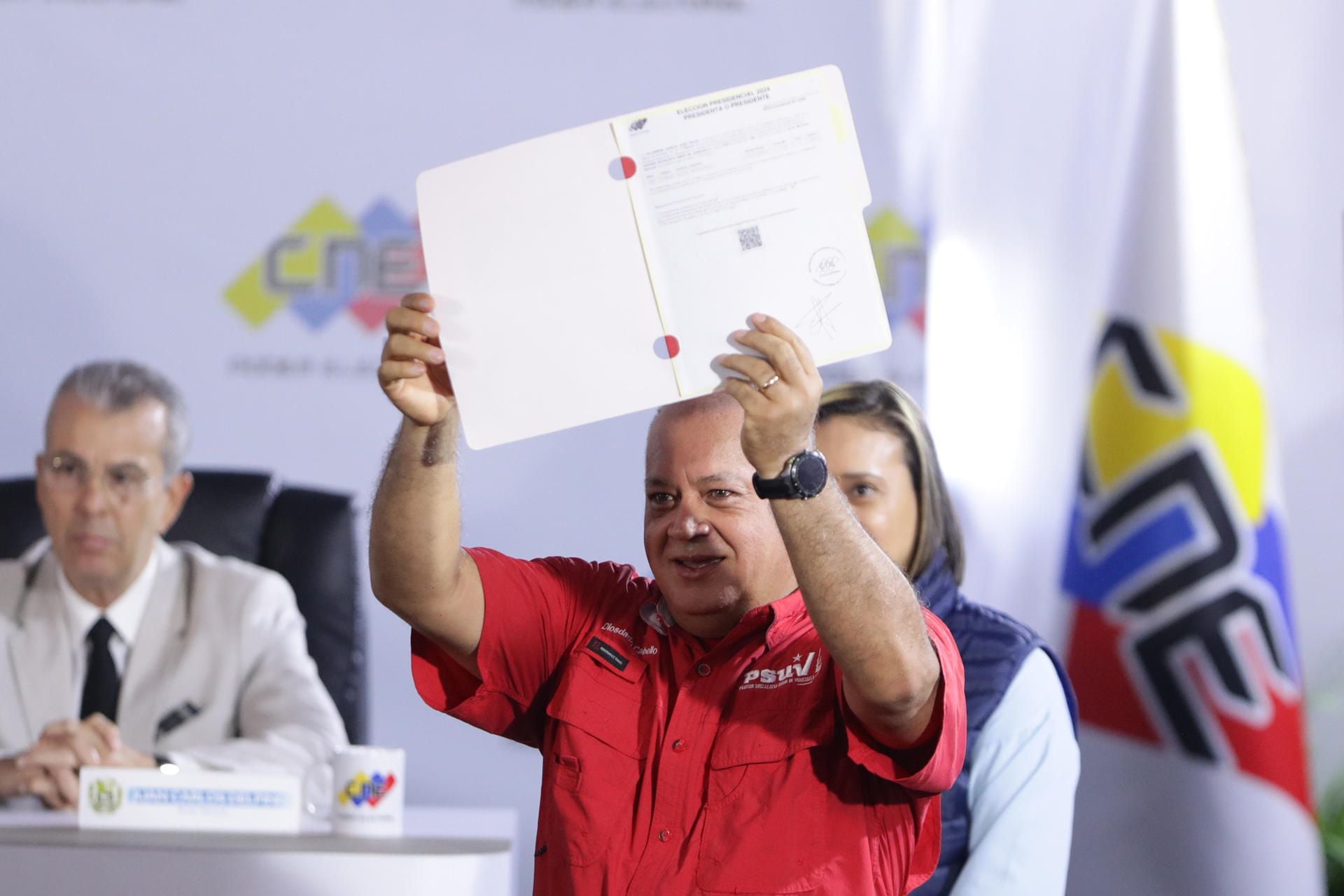From daily protests in Buenos Aires to the hunger strike in Madrid, Venezuelans around the world report that their consulates are preventing them from registering to vote in the presidential elections in which Nicolás Maduro its continuity is at stake.
Diplomatic officials explain to protesters that they did not receive fingerprint machines or chose to ignore them.
The scene is repeated in consulates in Latin America and Europe, where voters and activists denounce maneuvers to prevent around 5.2 million people, many of whom are opponents, from voting in the July 28 presidential elections.
Jesus Delgado, from the NGO Electoral Transparency which monitors electoral processes in Latin America, considers that these obstacles are “systematic and respond to the fact that the National Electoral Council did not send any guidelines” to the consulates.
Venezuelan authorities attribute the delays and difficulties in shipping the machines to international sanctions, according to the press.
The UN estimates that almost eight million Venezuelans have migrated from their country since 2014. The majority are fleeing an unprecedented crisis, with an 80% drop in GDP, hyperinflation, food and medicine shortages and immense political tension. The government’s rejection of Mature It’s spacious on the outside.
About 5.2 million They must update their registration abroad or register to vote for the first time, according to the NGO Súmate.
The electoral register was last updated in 2018 and has only 107 thousand registered Venezuelans in the world. Of these, around 40,000 are registered in the United States, where this time they will not be able to vote because the consulates have not been operating since 2019 due to the breakdown of diplomatic relations.
Between voting and disappointment
The election initially opposes President Nicolás Maturewho seeks a third six-year term, with Manuel Rosales, Hugo Chávez’s rival in 2006.
Former ambassador Edmundo González Urrutia also managed to register in extremis, considered a “disguised candidate” who could be replaced by another person promoted by leader María Corina Machado, prevented from participating in the election due to a 15-year disqualification.
The voter registration period runs from March 18th to April 16th.
In Colombia, where the largest number of Venezuelans live (2.8 million, of which around 1.2 million have the right to vote), the census opened several days late, only this Tuesday.
However, activists fear that the consulate will not consider the Temporary Protection Status, which the Colombian government granted to thousands of Venezuelans so they could work and have access to health care, as legal residency.
“This raises a lot of concern”, commented opposition leader Eduardo Battistini, as it prevents 80% to 90% of the potential voting population from registering. “In addition to being a blatant violation of our right to register abroad, these are somewhat ridiculous excuses.”
Although in the Venezuelan community in Bogotá there is also disappointment with politics and a certain indifference towards the elections.
“The truth is that I’m not going to vote. “I am very indifferent to politics, in the last ten years I have felt so much disappointment for not following it,” Carolina Peña, a 37-year-old fashion producer who last voted in 2013, told AFP. Mature happened to the deceased Hugo Chavez.

Demos
On the other hand, in Buenos Aires there have been almost daily protests in front of the embassy. On Monday, around thirty protesters simulated voting at a ballot box. “Voting abroad is a right”, says one of the banners.
“Each consulate has its requirements and communicates them verbally. There is nothing official. In some they ask for permanent residence, in others a valid passport. There is no uniform criteria”, lamented Adriana Flores, outside the consulate in Buenos Aires.
In Argentina there are around 220 thousand Venezuelans, of which around 150 thousand meet the requirements to vote. However, only 2,200 are registered on the electoral roll, according to activists’ calculations.
Meanwhile, in Madrid, Lorena Lima, 28 years old, says she went on a hunger strike from last Friday until this Tuesday to demand the opening of the registration.
“It was a pressure method so that all Venezuelans in the world could register,” she told AFP, sitting on a piece of cardboard on the sidewalk, the day before suspending the protest.
In Quito, Luis Magallanes did the same: “Hunger strike so that we can exercise our legitimate right to register and update our data in the electoral register,” he said.
Venezuelan authorities did not respond to AFP’s requests for comment.
Source: Elcomercio
I am Jack Morton and I work in 24 News Recorder. I mostly cover world news and I have also authored 24 news recorder. I find this work highly interesting and it allows me to keep up with current events happening around the world.

:quality(75)/cloudfront-us-east-1.images.arcpublishing.com/elcomercio/H4SJ5G7UBJDUFCVZJCTGDDF4GM.jpg)

:quality(75)/cloudfront-us-east-1.images.arcpublishing.com/elcomercio/WH2CYTIKL5BJJBOKOQJEO2NXXM.jpg)
:quality(75)/cloudfront-us-east-1.images.arcpublishing.com/elcomercio/6T5VR63ZIVHVHIZXGIZCSUVBCM.jpg)

:quality(75)/cloudfront-us-east-1.images.arcpublishing.com/elcomercio/XKZWTRX4YJHANAH3HA3FXGOALY.jpg)
